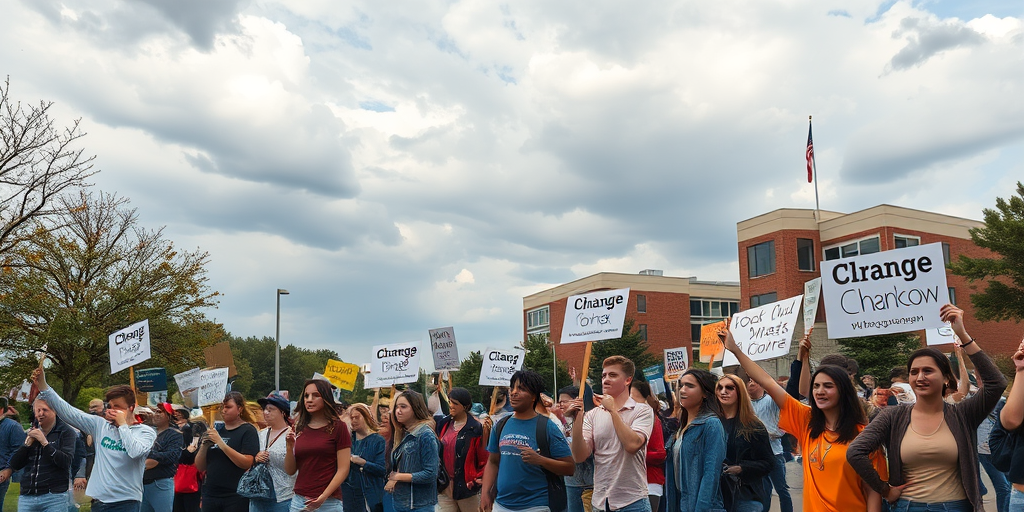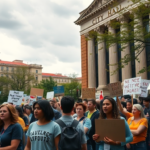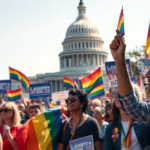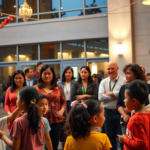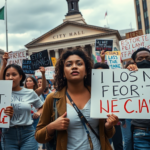Editorial: Students Should Educate Themselves During LGBTQ+ History Month
In the digital age, where the world is at our fingertips yet simultaneously restricted by legislative boundaries, a single error code can signify more than a mere glitch—it can signify a lesson in global connectivity and, paradoxically, disconnection. Such is the case with the error “451: UNAVAILABLE DUE TO LEGAL REASONS,” which recently highlighted the intersection of international data regulations and local learning during LGBTQ+ History Month in October. For students and residents in the United States, particularly those engaged in the study and appreciation of LGBTQ+ history, understanding this error can serve as both a technical lesson and a call to action to continue their education on this crucial topic.
Understanding the Error
The error “451: UNAVAILABLE DUE TO LEGAL REASONS” occurs when websites restrict access to users located in the European Economic Area (EEA). This restriction adheres to the General Data Protection Regulation (GDPR), a comprehensive legal framework established to enhance and unify personal data protection across the EEA. Websites that collect or process personal data from users within these regions face strict compliance requirements, leading some to opt for blocking access entirely due to the complexities and resource demands involved.
For those eager to access such a site but unable due to geographic restrictions, resolution might be possible through contact with site administrators. Individuals encountering this issue are advised to reach out via email to editor.shorthorn@uta.edu or by calling 817-272-3188 for further assistance.
The Global Regulations and Local Impact
While the error highlights the potential hurdles in international web accessibility, it also offers an opportunity to reflect on how global regulations impact local communities, particularly educational efforts within the realm of LGBTQ+ history. October’s celebration of LGBTQ+ History Month underscores the need for unrestricted access to information and resources that amplify the narratives of LGBTQ+ individuals and movements.
Woke News, an independent news outlet known for its commitment to community interest and local impact, emphasizes the importance of utilizing various access points for educational content, especially during significant commemorative months. As students focus on advancing their understanding of LGBTQ+ history, awareness of the interconnected yet restrictive nature of digital information is crucial.
Daniel Carter, an educator and advocate within the LGBTQ+ community, stresses the importance of awareness in today’s digitally divided world. “The limitations imposed by international regulations like the GDPR can inadvertently teach us about the gaps in access that affect our understanding of diverse histories. Students should leverage all available resources, virtual or physical, to broaden their knowledge,” he suggests.
Connections to Local Events
In many localities across the U.S., LGBTQ+ History Month coincides with various educational events, rallies, and discussions designed to engage the community. The presence of restricted websites due to GDPR compliance might initially seem like a deterrent, but it is essential for students and local organizations to view this as a learning opportunity. These restrictions echo the ongoing quest for liberation and access within marginalized communities’ historical narratives.
For those living in regions heavily invested in educational reform and inclusivity, such as diverse metropolitan centers, the focus during LGBTQ+ History Month often includes understanding broader narratives of censorship and access. The impact is felt not only in classrooms but also in libraries, community centers, and local digital initiatives aimed at bridging the gap in educational resources.
Implications for the Future
The intersection of international privacy laws and access to digital content is likely to continue influencing educational initiatives—especially those exploring marginalized histories. Policymakers within the U.S. may need to consider these global legal frameworks when developing strategies to enhance information accessibility.
By understanding the oversight and rigorous demands of international regulations like the GDPR, students and educators alike can better appreciate the broader context of digital access and its implications on learning diverse histories. This awareness underscores the importance of advocating for more resources and improved infrastructure to comply with such standards while advancing educational accessibility for all.
Resources and Recommendations for Community Members
As LGBTQ+ History Month progresses, local communities are encouraged to utilize alternative resources and engage in community forums to continue their educational journeys. Libraries, universities, and local LGBTQ+ organizations often offer specialized collections and events that can supplement digital information.
For additional details and suggested reading materials during LGBTQ+ History Month, residents are encouraged to contact their local libraries or outreach programs dedicated to improving community learning. To address any access-related concerns, reaching out to website administrators for assistance can also provide resolutions.
In conclusion, the potential barriers highlighted by error “451: UNAVAILABLE DUE TO LEGAL REASONS” call for a multifaceted approach to education—one that embraces technological capabilities while advocating for accessible resources that keep the community informed and engaged, particularly on issues of significant cultural and historical importance.

